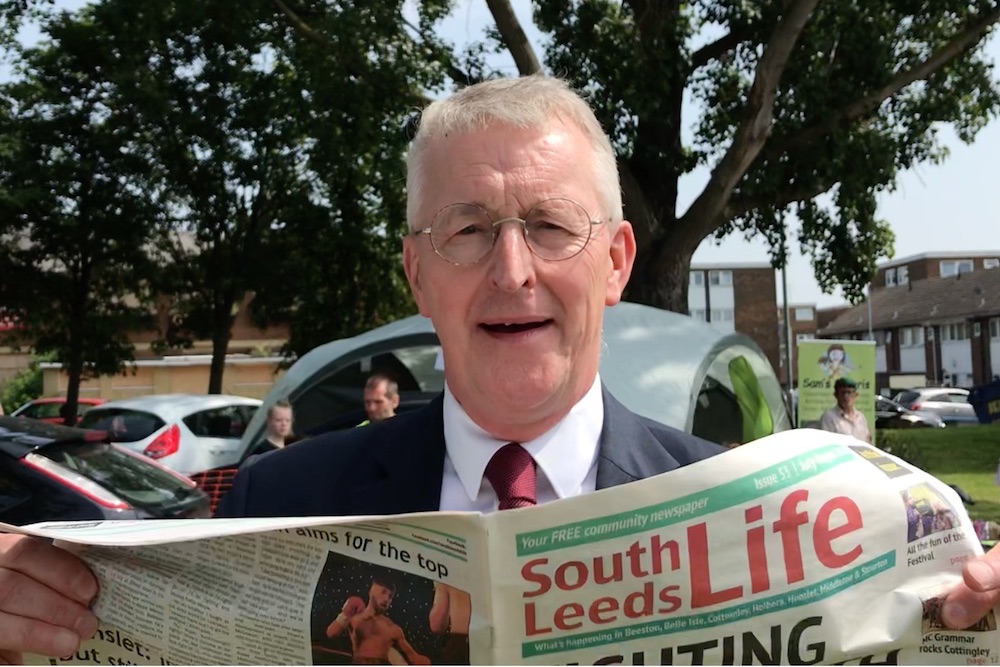
Just under two years ago a constituent called Rory Burke wrote to me. He revealed that he has a brain tumour and asked me to attend a meeting to discuss ways in which we could try to find a cure. I went along and little did I know then that I would end up taking part in an inquiry into brain cancer.
A cancer diagnosis is a very worrying thing. Around one in two of us will develop some sort of cancer during our lifetime, and South Leeds has a higher incidence of all kinds of cancer than the average for England.
I think most of us, if we are honest, would say that we wince when we hear the word “cancer”, because those who have been through that experience, either ourselves or, in my case, when my first wife died of cancer at the age of 26 and my Mum died of breast cancer, we know exactly how that feels.
But our lives are not pre-ordained, and we have seen real advances in the treatment of certain types of cancer in recent years. Breast cancer is a good example and, overall, cancer survival rates in the UK have doubled in the last 40 years.
But when it comes to brain tumours, the blunt truth is that we have seen almost no progress at all. The five-year survival rate for glioblastoma, the most aggressive form, is 6.8%, and the average length of survival is around 9 months. Dr Matt Williams, a clinical oncologist, has said this:
“Every week I have to tell patients that there is nothing more we can offer. I have now been a consultant for 10 years and these conversations are the same now as when I started.”
That is why a brain tumour is such a dreadful diagnosis. As one patient put it:
“It’s devastating living with a time bomb in your head.”
That is a very good description of what it must feel like.
In those circumstances, what do patients and loved ones wish for? We just want to do all we can to help, and the report of the MPs’ inquiry into brain tumours, that I was part of, is about trying to make sure that this happens.
There are good reasons why brain cancer is proving so difficult to treat. Drugs have been tried and failed, and patients with brain tumours are desperate to get on to trials that might just offer some chance, not of a cure, but of a few more months.
For someone who has received a diagnosis of a brain tumour, every second — let alone every minute, week or month — is extremely precious. It is particularly poignant when a child has a brain tumour.
So we are calling for patients with brain tumours to have better access to trials of new anti-cancer drugs that currently may be available only to patients with other types of malignant cancers. There can be a fear that if other people are brought into the trial, it will somehow skew the result.
However, if a person is dying, that is understandably not their concern. Their concern is: “Might this possibly work to save or prolong my life or the life of the person I love?”
Not surprisingly, we have asked for greater investment, but not all the money that has already been made available for brain tumour research has been spent. This is because not enough research proposals are getting the go ahead and that’s why we want the research councils to look more widely at, and more favourably upon, proposals for brain tumour studies.
We also have a research system that needs to be better joined up, from basic science through to clinical trials. When we are dealing with any disease, but particularly this one, doesn’t it make sense to pool all of the information that we have available about what we have learned, what we still do not know, what may work and what may not?
Clearly, that is not happening enough, even though it is a simple thing to do so that anyone undertaking research can draw upon all the available material as they apply their mind, scientific skill and determination to finding a cure.
I know we will all want to thank the clinicians, scientists, doctors and others who are working their socks off to try and crack this problem and find treatments, and also all the staff in hospitals and in the community who care for and support people living with cancer.
It is a heavy burden to bear on your own and the support of family, friends and NHS staff makes all the difference.
I hope that our cross-party report will have an impact as, collectively, we roll up our sleeves, redouble our efforts, and show even greater determination to find treatments and cures for this cruel disease that shortens the lives of so many people whom we have come to know or know already and love.
What keeps us going in difficult times is hope. As one patient said:
“If you have hope, you have life.”
Whilst you’re here, can we ask a favour?
South Leeds Life is published by a not-for-profit social enterprise. We keep our costs as low as possible but we’ve been hit by increases in the print costs for our monthly newspaper – up 83% in the last 12 months.
Could you help support local community news by making a one off donation, or even better taking out a supporters subscription?
Donate here, or sign up for a subscription at bit.ly/SLLsubscribe


